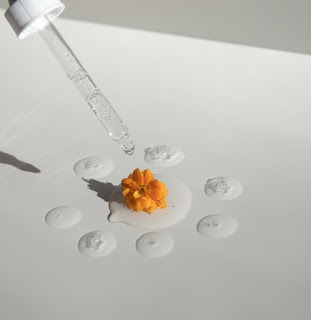Essential Oils for Meditation: Enhancing Your Practice
Top 8 Meditation Oils to Boost Your Mindfulness Practice

Benefits of Using Essential Oils in Meditation
Using essential oils to enhance meditation has a long history, even though their popularity has surged in the past decade. Today, I aim to provide context about essential oils. They are not miracle products that will save you but rather tools to enhance your sensory experience, especially during meditation with relaxing essential oils.
Essential oils can significantly enhance your meditation practice. They promote mental clarity and reduce mind chatter, helping you achieve a more focused and concentrated state. Lavender oil, a versatile essential oil, can be applied directly onto the skin for meditation. They also foster relaxation and calmness, reducing stress and anxiety, which can often be barriers to deep meditation. Additionally, essential oils improve mood and emotional balance, aiding in the healing of emotional and spiritual wounds.
By integrating essential oils into your meditation practice, you can create a more profound and enriching experience.
Historical Context of Essential Oils in Meditation
The use of essential oils in spiritual and meditation practices dates back thousands of years. Ancient civilizations, including the Egyptians, Greeks, and Chinese, recognized the potent effects of essential oils in religious rituals and healing ceremonies. For instance, frankincense and myrrh were treasured for their aromatic properties and often used in temples and spiritual ceremonies to purify the air and mind. This historical use underscores the timeless value of essential oils in promoting a serene and focused meditative state.
How to Use Essential Oils for Meditation
Essential oils can significantly enhance your meditation practice by promoting mental clarity and reducing mind chatter. This helps in achieving a more focused and concentrated state. They also foster relaxation and calmness, which can mitigate stress and anxiety—common barriers to deep meditation. For instance, lavender oil is renowned for its calming properties, ideal for mindfulness and meditation.
Using scents to heighten mindfulness can anchor you in the present moment—a technique applicable beyond meditation. When cooking or baking, for instance, the aroma intensifies my focus on the present task. Similarly, establishing a signature scent for your meditation practice, whether it’s zen or metta meditation, can deepen your experience.
Diffusion methods
One effective way to use essential oils during meditation is through diffusion. Using a diffuser to disperse essential oils throughout your meditation space can create a calming atmosphere. Simply add a few drops of your chosen essential oil to the diffuser before you begin meditating. The gentle release of the aroma into the air helps to enhance focus, reduce stress, and create a serene environment conducive to meditation.
The Science Behind Essential Oils and Meditation
The effectiveness of essential oils in enhancing meditation is not just anecdotal but supported by scientific research. Studies have shown that certain essential oils can influence the brain’s limbic system, which controls emotions and memory. For example, lavender oil has been found to decrease anxiety levels by affecting the neurotransmitter GABA, promoting a state of calm and relaxation. Similarly, sandalwood oil’s sesquiterpenes can stimulate the pineal gland, which regulates sleep and mood, further supporting a meditative state. Understanding the science behind these oils can help you make more informed choices about which ones to integrate into your practice.
Topical Application
Another method to incorporate essential oils into your meditation practice is through topical application. Dilute the essential oils in a carrier oil and apply them to pulse points or specific areas of your body. For instance, you can apply a meditation blend to your temples or behind your ears to promote relaxation. This direct application allows the oils to be absorbed into your skin, providing a sustained and soothing effect that supports your meditative state.
Inhalation Techniques
Inhalation techniques are also a powerful way to experience the benefits of essential oils during meditation. You can inhale directly from the bottle or use a tissue diffuser for a quick and effective way to calm the mind and body. Alternatively, you can use a steam diffuser to disperse essential oils through a fine mist, offering a longer-lasting aroma that envelops your meditation space. This method helps to maintain a continuous and relaxing atmosphere throughout your practice.

Top Essential Oils for Meditation
Sandalwood Essential Oil
Sandalwood essential oil is known for its grounding and calming properties, promoting inner peace and relaxation. It is often used in yoga and meditation practices to enhance mental clarity and focus, making it an excellent choice for deepening your meditation experience.
Lavender Essential Oil
Lavender essential oil is celebrated for its calming and relaxing effects, making it ideal for reducing stress and anxiety. It promotes emotional balance and helps to heal emotional wounds, providing a sense of tranquility that supports a peaceful meditation practice.
Palo Santo Essential Oil
Palo santo essential oil is historically used to cleanse negative energy. Its grounding and calming properties make it ideal for meditation practice, promoting feelings of being grounded and calm.
Frankincense Essential Oil
Frankincense essential oil has uplifting and calming properties that help reduce negative energy and promote spiritual growth. It is frequently used in meditation to enhance mental clarity and focus, allowing for a more profound and centered meditative state.
Ylang Ylang Essential Oil
Ylang ylang essential oil is both uplifting and calming, fostering feelings of joy and relaxation. It helps to balance energy and reduce negative emotions, creating a positive and serene atmosphere for meditation.
Clary Sage Essential Oil
Clary sage essential oil is known for its calming and relaxing effects, which help to reduce stress and anxiety. It promotes emotional balance and assists in healing emotional wounds, making it a valuable addition to any meditation routine.
Vetiver Essential Oil
Vetiver essential oil is grounding and calming, promoting relaxation and reducing anxiety. It is often used in meditation to enhance mental clarity and focus, providing a stable and peaceful environment for your practice.
Chamomile Essential Oil
Chamomile essential oil is renowned for its calming and soothing properties, promoting relaxation and reducing stress. It is often used in meditation to foster emotional balance and calmness, helping to create a serene and focused meditation session.

Creating an Essential Oil Blend for Meditation
Creating your own essential oil blend can be a wonderful way to customize your meditation experience. Combine different essential oils to craft a unique meditation blend that suits your needs. Experiment with various ratios of essential oils to find the perfect combination that enhances your meditation practice. Consider creating essential oil blends such as ‘Slow Down’ for calming, ‘Stay Present’ for grounding, and ‘Unwind’ for relaxing. This personalized blend can help you achieve the desired mental and emotional state, making your meditation sessions more effective and enjoyable.
Creating a Meditation Ritual with Essential Oils
Establishing a consistent ritual can significantly enhance the effectiveness of your meditation practice. Begin by choosing a quiet, comfortable space free from distractions. Light a candle or two to set the mood and use a diffuser to release your chosen essential oil into the air. You might also consider using a special cushion or mat dedicated to your practice. Start with a few deep breaths, inhaling the calming aroma, and allow the scent to ground you. This ritualistic approach can help signal to your mind and body that it’s time to enter a state of relaxation and mindfulness.
Combining Essential Oils with Other Mindfulness Practices
In addition to meditation, essential oils can be incorporated into other mindfulness practices such as yoga, tai chi, or mindful breathing exercises. For example, applying a calming essential oil like vetiver to your wrists or neck before a yoga session can enhance your focus and deepen your practice. During tai chi, diffusing essential oils can help maintain a sense of calm and flow. By integrating essential oils into various aspects of your mindfulness routine, you can create a holistic approach to mental and emotional well-being.
Safety and Precautions When Using Essential Oils
While essential oils can be incredibly beneficial, it’s important to use them safely. Always dilute essential oils with a carrier oil like coconut or jojoba oil before applying them to your skin to prevent irritation. Conduct a patch test on a small area of skin to check for allergic reactions. Additionally, some essential oils can be toxic if ingested or if used in high concentrations. Pregnant women, children, and individuals with certain medical conditions should consult a healthcare provider before using essential oils. By following these precautions, you can safely enjoy the benefits of essential oils in your meditation practice.
Personalizing Your Essential Oil Meditation Experience
Everyone’s response to essential oils is unique, so it’s important to experiment and find what works best for you. Start with a single oil and observe how it affects your meditation. Gradually introduce other oils and note any changes in your focus, relaxation, and emotional balance. Keep a journal to track your experiences and preferences. You can also experiment with different combinations and blends to create a personalized essential oil meditation toolkit. This personalized approach ensures that your meditation practice is tailored to your specific needs and preferences.
Essential Oils for Group Meditation Sessions
If you lead or participate in group meditation sessions, essential oils can enhance the collective experience. Diffusing essential oils in a shared space can create a harmonious and calming environment that benefits everyone. Consider using neutral oils like lavender or frankincense, which are generally well-tolerated and have broad appeal. Before the session, inform participants about the oils being used and ensure there are no allergies or sensitivities. Group meditation with essential oils can foster a deeper sense of connection and shared tranquility.
Integrating Essential Oils into Modern Meditation Practices
Modern meditation practices often incorporate various tools and technologies to enhance the experience. Essential oils can complement these innovations by providing a natural, sensory element. For example, combining essential oils with guided meditation apps can enhance the auditory experience with a soothing scent. Using wearable devices that track stress and relaxation levels, you can observe how different oils impact your physiological responses. Integrating essential oils with contemporary meditation methods bridges the gap between ancient traditions and modern wellness practices.
Enhancing Your Meditation Practice with Essential Oils
Incorporating essential oils into your meditation practice can significantly enrich your sensory experience and deepen your meditative state. Whether you choose to diffuse them, apply them topically, or inhale their calming aromas, essential oils offer a versatile and powerful way to enhance focus, reduce stress, and promote emotional balance.
Relaxing essential oils, such as lavender essential oil, are particularly suitable for diffusing during meditation due to their calming and relaxing properties. By exploring different essential oils like sandalwood, lavender, frankincense, ylang ylang, clary sage, vetiver, and chamomile, you can discover the unique benefits each one brings to your meditation. Additionally, creating personalized blends allows you to tailor your meditation practice to your specific needs, making each session more profound and fulfilling.
Remember, essential oils are not a miracle cure but a valuable tool to support your journey towards inner peace and relaxation. Embrace the natural benefits of essential oils and elevate your meditation practice to new heights.





